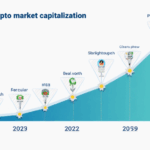Introduction
Vietnam is on the verge of becoming a hub for blockchain innovation and education. In 2023, the country saw a remarkable growth of 45% in cryptocurrency users, highlighting the increasing interest in digital assets among its citizens. However, with great interest comes the need for education. With $4.1 billion lost to DeFi hacks in 2024 alone, it’s clear that understanding blockchain technology and associated security practices is crucial. This article will explore Vietnam’s blockchain education initiatives and how they are shaping the future of digital asset knowledge while providing valuable insights for stakeholders involved in this growing sector.
Understanding Blockchain Technology
Blockchain technology offers a decentralized and secure method of recording transactions. Unlike traditional centralized systems, blockchain eliminates single points of failure. To understand this better, think of blockchain as a massive ledger that is accessible to all but cannot be altered without consent. For Vietnamese citizens, mastering these principles is essential. This aligns not only with global trends but also with local demand, as businesses increasingly seek blockchain proficiency to remain competitive.
The Rise of Educational Initiatives in Vietnam
The Vietnamese government and several private sectors are stepping up education initiatives to address the knowledge gap in blockchain technology:

- University Programs: Leading Vietnamese universities are introducing degree programs and courses focusing on blockchain technology. For instance, FPT University has launched a specialized Blockchain Development program.
- Online Courses: Platforms such as EdX and Coursera are offering courses in Vietnamese and targeting local learners, making it easier for individuals to access blockchain education.
- Community Workshops: Organizations like Vietnam Blockchain Club are regularly hosting workshops to guide participants through blockchain basics and advanced concepts.
Curriculum Development and Industry Collaboration
Another aspect of these educational initiatives is the collaboration between academia and the blockchain industry. For example:
- Partnerships with Tech Companies: Collaboration with local tech giants such as MoMo and VNG Corporation allows students real-world exposure to blockchain projects.
- Curriculum Updates: Continuous updates to the blockchain curriculum ensure that it reflects current industry standards. This is aligned with the tiêu chuẩn an ninh blockchain (blockchain security standards) practices.
- Guest Lectures: Regular guest lectures by industry leaders provide firsthand insights into the challenges and innovations within the blockchain space.
Real-World Applications of Blockchain Education
The focus on practical applications of blockchain knowledge is critical. Students and participants can engage in:
- Cryptocurrency Security: As the Vietnamese cryptocurrency market expands, so does the need for expertise in securing digital assets.
- Smart Contract Development: Learning how to audit smart contracts effectively prepares graduates for future careers in blockchain technology.
- Decentralized Finance (DeFi): Educating about DeFi can help individuals build and manage portfolios securely.
Case Studies of Successful Initiatives
Several successful initiatives illustrate the positive impact of educational programs in Vietnam:
- Blockchain Challenge Vietnam: This annual competition encourages students to develop blockchain projects, fostering innovation.
- Women in Blockchain: A special initiative aimed at empowering women through workshops and mentorship in blockchain fields.
- Corporate Training Programs: Companies like VinGroup offer training programs for employees to integrate blockchain technology into their operations.
The Future of Blockchain Education in Vietnam
As we move towards 2025, the landscape of blockchain education in Vietnam will continue to evolve, with the following trends expected:
- Increased Funding: Both government and private investment in educational resources and research will expand.
- Enhanced Global Collaboration: Partnerships with international institutions for knowledge sharing and academic exchanges.
- Cultural Adaptation: As the educational resources and materials become more localized, understanding blockchain’s relevance in Vietnamese culture will enhance learning experiences.
Conclusion
In conclusion, Vietnam’s blockchain education initiatives are paving the way for a robust understanding of digital assets and their market dynamics. By fostering partnerships between educational institutions and the blockchain industry, Vietnam is equipping its citizens with the necessary tools to navigate the complexities of blockchain technology. With the rise in cryptocurrency users and the call for securing digital assets, initiatives like these play a pivotal role in ensuring Vietnam remains competitive in a rapidly evolving digital landscape. As the country continues to enhance its blockchain education efforts, we can expect significant contributions to the global blockchain ecosystem.
For more insights on Vietnam’s growing blockchain landscape, visit hibt.com and explore our articles on cryptocurrency trends and innovations.
Author: Dr. Nguyen Tran, a blockchain technology expert and researcher with over 15 published papers and a consultant for various high-profile blockchain audits.





